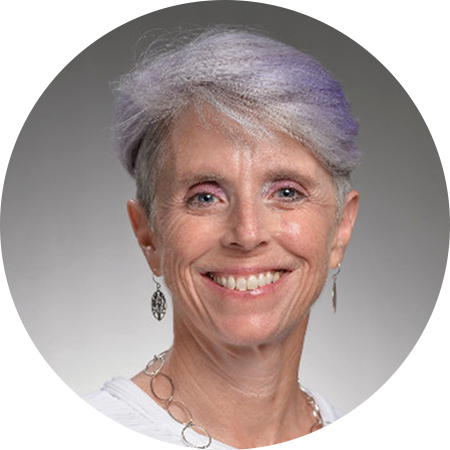During the COVID-19 pandemic, people spent a lot of time isolated and indoors, which helped foster an environment where some people now feel lonelier than ever. The result is a loss of social connectedness—the degree to which people feel the social connections and relationships in their lives to satisfy their wants and needs. When social…
Your Welcoa membership has expired.
Aging in Wellness: Understanding What Is Influencing Health Behavior in Our Aging Workforce
Aging in America is a scary proposition. Not only is getting “old” and looking old unpopular, but no one really wants to talk about it either. Turning fifty-five this past year has me in a very reflective place as a wellness professional and an aging citizen.
Each day I’m either providing individual one on one health coaching for large employer groups or I’m consulting on wellness strategy for these groups. Most of the time the HR team and C-Suite are in reaction mode having just received a rate increase from my company, or dealing with significant workman’s comp claims that now have frighteningly high connections to mental health issues and sleep deprivation. The employer wants us to “fix” their employees quickly. The employees want to be understood and cared for. Yes, I’m generalizing, but aside from mega companies like Google, Facebook, Johnson & Johnson etc. most companies I encounter fall into this pattern. From my vantage point we are missing a huge opportunity to quell what many are calling the “silver tsunami”.
The US Bureau of Labor Statistic projects that 24.3 percent of the workforce this year will be aged 55 and above. Due to financial realities, my generation is forced to prepare ourselves to work until the age of 70. Those of us faced with this reality are secretly freaking out! How will I be able to maintain my health to a level that supports a 40 plus hour work week, frequent travel, caregiving, increasing cost of living as well as the fear of healthcare costs associated with end of life care? Add to that personal concerns about being pushed out of my position because I no longer “look the part” or my skill set is no longer needed. Attempting to get another job at 60 becomes a worst nightmare.
Let’s begin an “unpopular” conversation. Wellness professionals and employers, we might begin by asking a couple of questions: Where do you stand on your personal feelings about aging? Do you harbor a negative bias toward your aging staff? Are you struggling with your own aging issues? I ask all of you, do you know what the unique influencers and health needs are of your aging workforce? Here are some for starters:
- Fear of being outsourced due to age
- Fear of being discriminated against due to age
- Financial and emotional burdens related to caregiving
- Increased medical cost due to aging
- Chronic diseases worsening with age
- Complications due to menopause or low testosterone
- Friends and family dying
- Divorce
- Children leaving home
- Fear of dementia and Alzheimer’s disease
- Fear of being a burden to family
What can be done? The good news in all of this is that so many of the issues that are directly influencing health behavior in the 55+ age range could be addressed by understanding and building work communities that reflect the data within the Social Determinants of Health (SDOH) research. No matter your age, sex, culture, education, or socioeconomic level, we all need positive relationships.
The importance of relationship building has become glaringly clear to me in my coaching sessions. Invariably my clients will attend their first session wanting to get help with a chronic disease issue because their employer has just pushed them with increasing their deductible out of pocket expenses. Within that first session we explore their SDOH and find that they are struggling financially, can’t afford their medications, are living alone, or are staying in jobs they hate because they only have ten years left before they are able to retire. My work with them in subsequent sessions is to support them in exploring possible opportunities like support groups, EAP services, debt relief or financial wellness programs. Yes, those are the programs that you already offer your employees, but have very little traction due to stigma. Coaching provides a human connection that folks are craving. There is no judgement, no telling them what they must do to be healthier; merely listening, engaging, and respecting their experience.
Onsite and telephonic health coaching provides a connection and relationship that promote the client’s strengths, autonomy, agency, and self-efficacy. We build trust which is at the core of trauma informed communication and diminishes the heavy load caused by SDOH.
Not all employer groups can implement coaching services, but they can leverage their wellness committees to develop and deploy programming that invites relationship building across all segments of the workforce. We need to stop focusing on weight reduction, healthy eating, and exercise as the only means toward chronic disease management and reduction in health care costs. If we build communities similarly to the Blue Zones, we might just be on to something. What would that look like? No one sits at their desk at lunch, there is communal eating. No one responds to email when sick, on vacation, after work or on the weekend. When someone calls out sick, someone on the wellness committee calls to check in on them. There would be a mentoring program matching employee with the longest work history with new hires. There might be a weekly “town hall” to share news not just about the company but of marriages, birth, retirements, and experiences with resources that the company provides. Yes, even companies with various locations and shifts can make this work.
This is just the beginning of the conversation. There are no fast answers. I do know this: when we hold each other up and build a caring community, everyone has the potential to age with dignity and hope. Yes, this sounds a little too much like a Kumbaya moment, but I think we all could use a little more Kumbaya. Don’t you?
https://www.bluezones.com/
https://www.healthypeople.gov/2020/topics-objectives/topic/social-determinants-of-health

Diana Bishop, MA // Sr. Learning Consultant • Kaiser Permanente
Diana Bishop is uniquely qualified as a senior learning consultant and drama therapist who specializes in posttraumatic stress disorders and addiction medicine. Her career at Kaiser Permanente Southern California began 25 years ago in Integrative Wellness, where she worked with weight management and bariatric surgery patients. In her current role for Kaiser Permanente’s Center for Healthy Living department, Diana positively impacts employee health in corporations, and she passionately advocates for veterans’ mental health through Wives of War in San Diego.




